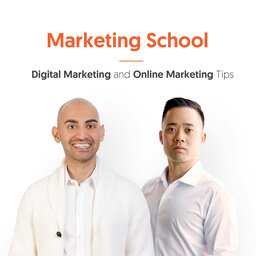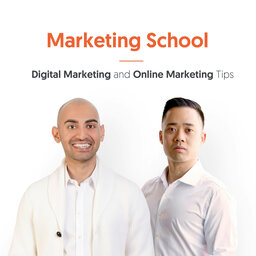How Pepsi Defeated Coke In Two Battles (And What You Can Learn From It) | Ep. #794
In episode #794, Eric and Neil discuss how Pepsi managed to defeat Coke in two ways. Tune in to hear what you could learn from this soda giant.
TIME-STAMPED SHOW NOTES:
- [00:27] Today’s Topic: How Pepsi Defeated Coke In Two Battles (And What You Can Learn From It)
- [00:36] Coke is still the biggest beverage company in the world and they have a larger market cap.
- [00:57] There is a book about this topic possibly called Fizzled and a podcast called “Business Wars”.
- [01:10] Pepsi went out of business a couple of times
- [01:15] When Coke was ahead and 10 Cents a bottle, Pepsi said for 5 Cents, you get double the amount of soda.
- [01:55] When you do something price-wise like Pepsi did, it’s a great way to gobble up market share and take over.
- [02:20] Uber and Lyft tried similar techniques and helped the companies grow exponentially.
- [02:55] Michael Jackson was hot in the 1980’s.
- [03:10] Pepsi was losing market share, so they paid Michael millions of dollars to do an ad.
- [03:35] This one spokesperson boosted their sales.
- [03:55] Freemium and free trials are great ways to undercut your competitors and get more business.
- [04:45] Choose your spokespeople wisely.
- [05:41] Pepsi tried to replicate the Michael Jackson effect with Britney Spears and Beyonce and it didn’t work.
- [06:07] That’s it for today!
- [06:12] Go here to see how many downloads the show is getting. Also rate and review to help Eric and Neil meet their goal of 1 Million downloads per month. They will throw a live event once they reach their goal.
Leave some feedback:
- What should we talk about next? Please let us know in the comments below.
- Did you enjoy this episode? If so, please leave a short review.
Connect with us:
Learn more about your ad choices. Visit megaphone.fm/adchoices
Marketing School - Digital Marketing and Online Marketing Tips
Neil Patel and Eric Siu bring you daily ACTIONABLE digital marketing lessons that they've learned th…Social links
Follow podcast
Recent clips

Mastermind Dinners: LeadGen That Actually Works in 2024
16:08

30M vs 500 Views - The One Change That Made All The Difference
12:35

AI concierge will affect dating - implications for business, Perplexity's AI-generated podcast, OpenAI dissolves team focused on long-term AI risks (less than one year after announcing it), Why swarming is killing SEO, and Ag1 spent $40m on podcasts
10:47
 Marketing School - Digital Marketing and Online Marketing Tips
Marketing School - Digital Marketing and Online Marketing Tips